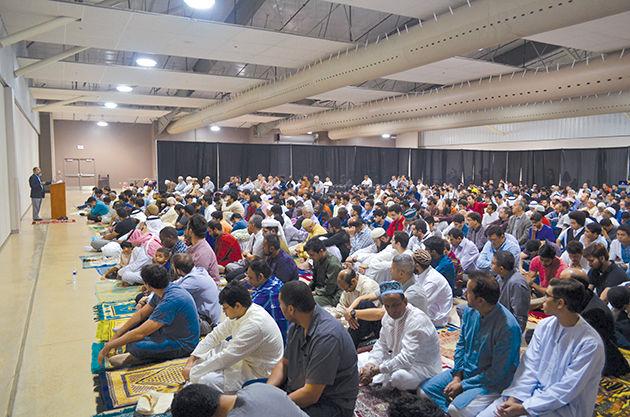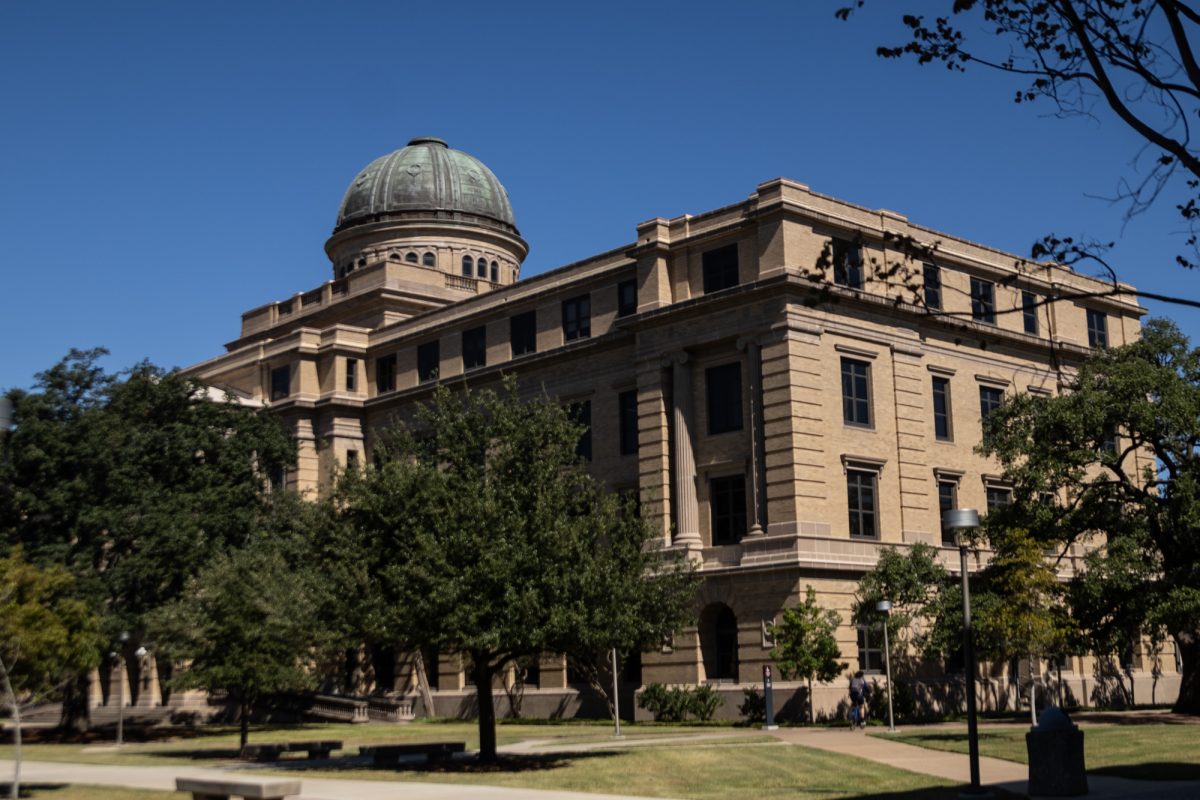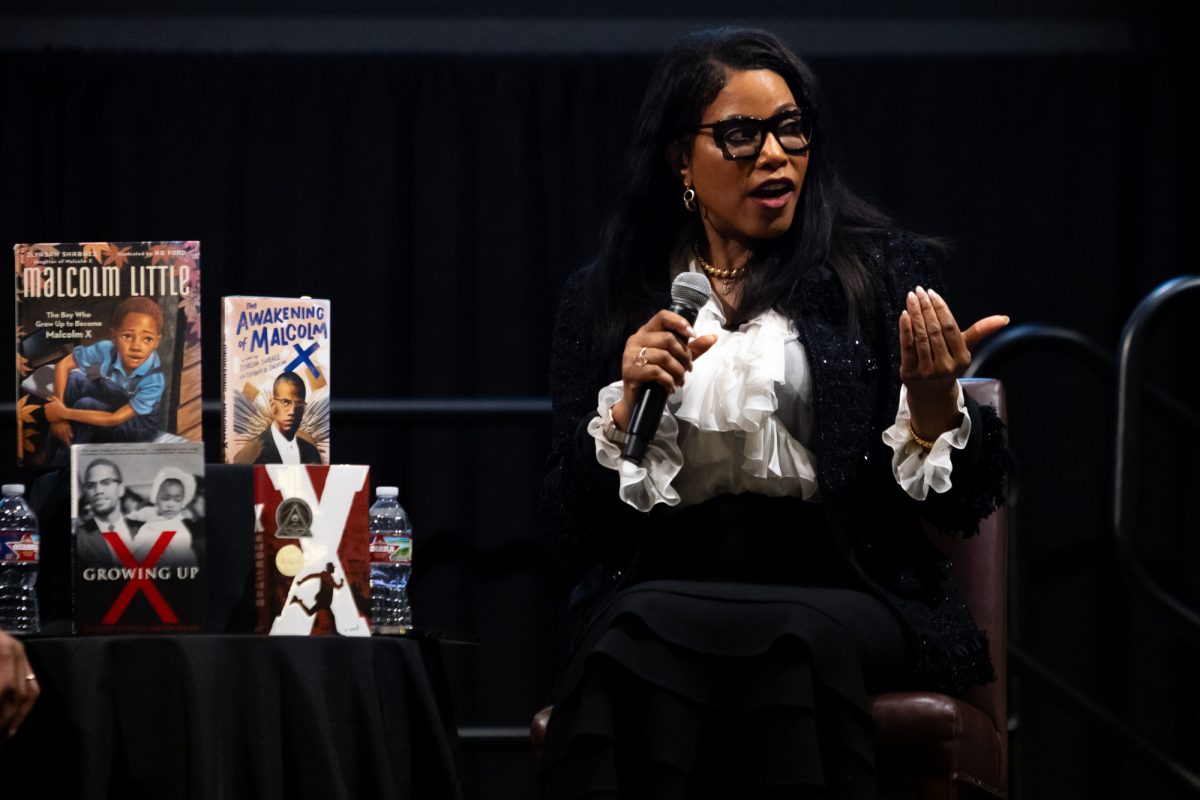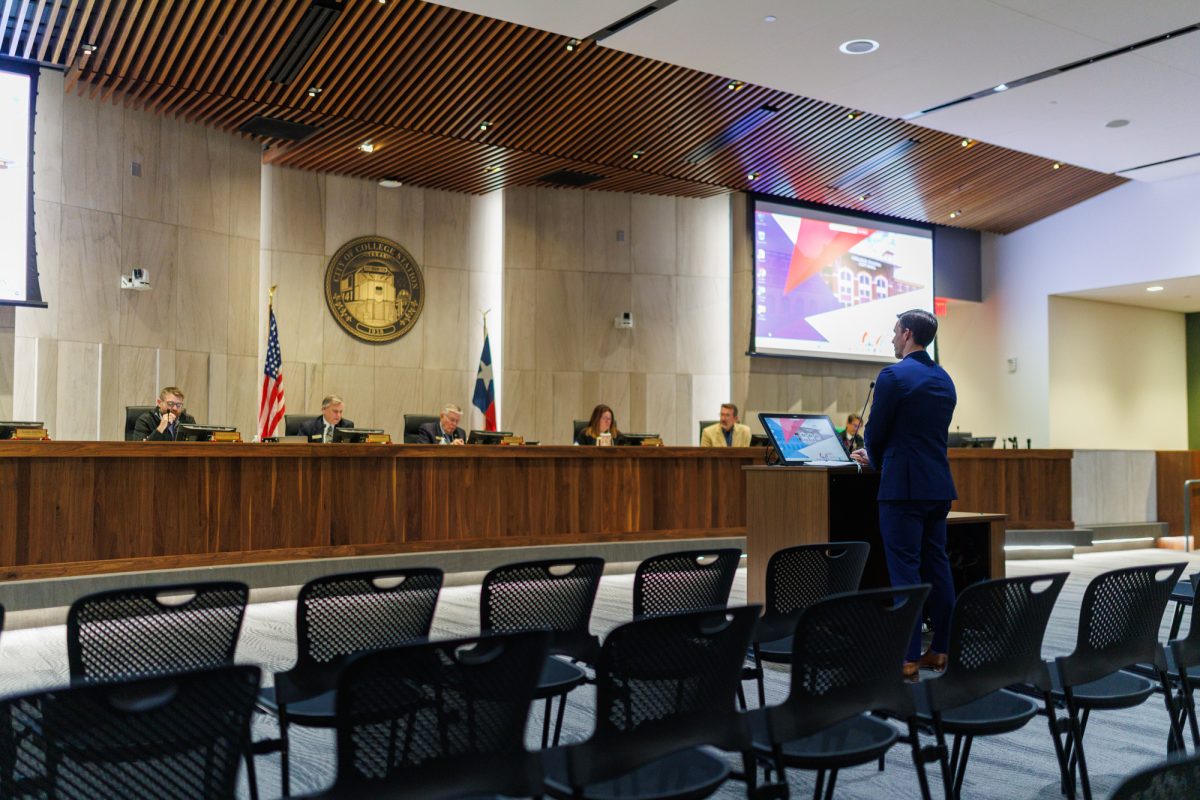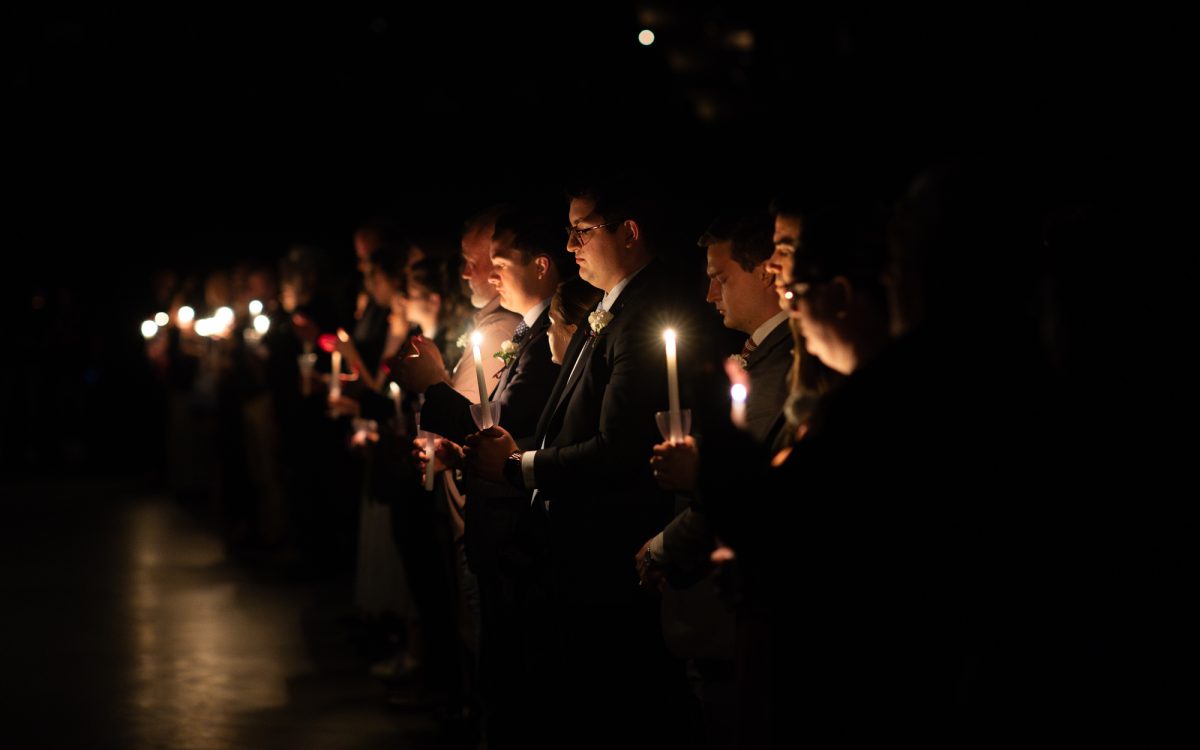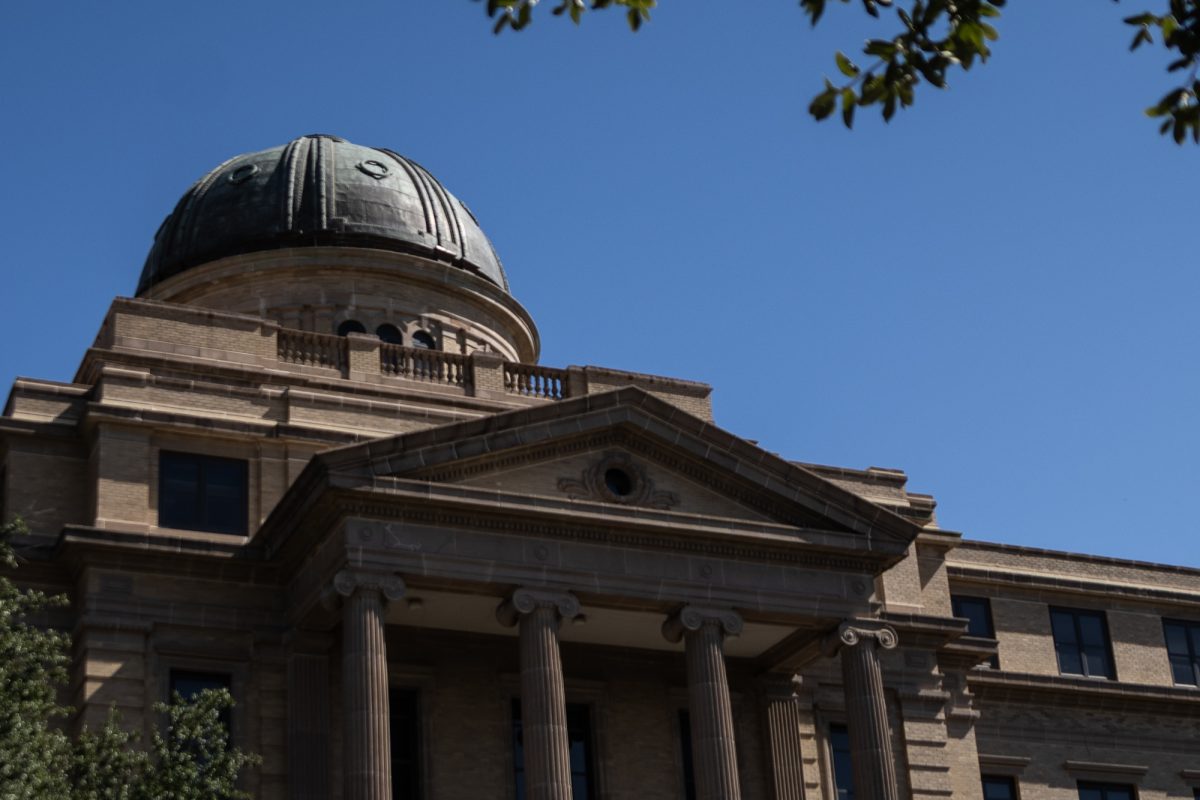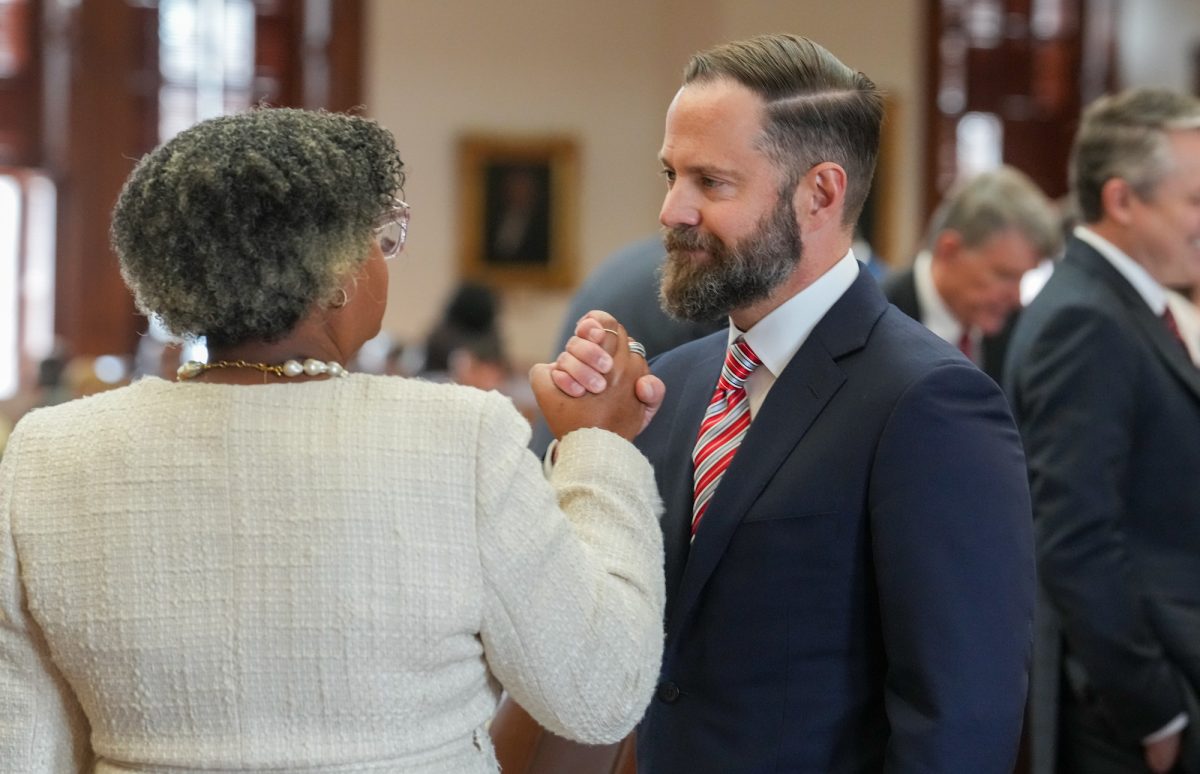The Muslim community of Bryan-College Station gathered early Monday morning at the Brazos County Exposition Complex to join the world’s Muslim communities in celebrating Eid Al-Adha.
Eid al-Adha, a Muslim celebration of the story of Abraham’s willingness to sacrifice his son for God, takes place after the completion of the Hajj, a mandatory pilgrimage Muslims are expected to make once in their life if in good health and financial status. The day to celebrate Eid is determined by the new moon. Around the predicted time of 11 months, if a new moon is sighted, Eid occurs 10 days later.
“This is one of the two main annual Muslim celebrations we have in a year,” said Anwer Ahmed, president of Islamic Community of Bryan-College Station (ICBCS). “The first one is for the end of Ramadan. This one is after the completion of the hajj, and it also commemorates the sacrifice of Abraham, when he was asked to offer his son in sacrifice, and he was willing to do it.
In the story of Abraham, it is believed that Abraham, following a dream he had, agreed to sacrifice his son Ishmael because of a command from God. Before he could sacrifice his son, Muslims believe God presented him a ram to sacrifice in his son’s place. Ahmed said because the story of Abraham is the foundation of the celebration, it factors into many of the celebration’s traditions.
“We have a special prayer in the morning, and then people visit each other,” Ahmed said. “Some people will go sacrifice an animal, similar to the sacrifice that Abraham made, because God replaced his son with a ram. Others will send the sacrificed meat to needy places in the world. Part of it is to be shared with the needy, part for your friends and a part is for yourself.”
The significance of the sacrificed animal was explained in a short khutbah, or sermon, on the story of Abraham. Ahmed said the theme of sacrifice is prevalent in the Eid celebration.
“[Abraham]loved God more than he loved his son and therefore it reminds us that the love of Allah (the Arabic word for “God”) dominates all other loves, and all loyalties,” Ahmed said. “We also value his willingness to sacrifice. You cannot achieve anything great without sacrifice. This is true in academics as well. Students who work hard and sacrifice their time to studies will do well than those who don’t. The same way in religion.”
Among the crowd of people at the prayer, some students were able to make time to attend. Some students, like genetics freshman Eldow Duha, improvise a way to celebrate ‘Eid without interfering with class schedules.
“I liked the prayer and the people here, but I don’t know many people to do anything with yet,” Duha said. “My family, friends and I always go somewhere [for Eid]. I can’t do anything like that because I have classes, but I’m going to a picnic with some friends.”
As a way to bring the community together, the Muslim Student Association (MSA) and ICBCS hold different events to allow students to participate in regular traditions.
“ICBCS and MSA work together to hold ‘Eid prayers and a dinner for students,” said Saira Ahmed, MSA Public Relations officer. “We also hold a community picnic every year for the community to come out and have a good time.”
People all over the world are spending this time to build bridges and celebrate a holiday as not just separate countries or areas, but as one large community, said Saira Ahmed.
“The core essence of ‘Eid surrounds on the idea of an inclusive festivity that helps to dissolve the social differences between community members and bring them closer in celebration,” said Saira Ahmed. “Even though ‘Eid is celebrated by Muslims, the most beautiful aspects, other than the traditions, is that ‘Eid celebrations encourage the entire community to participate, and bring happiness to one another.




